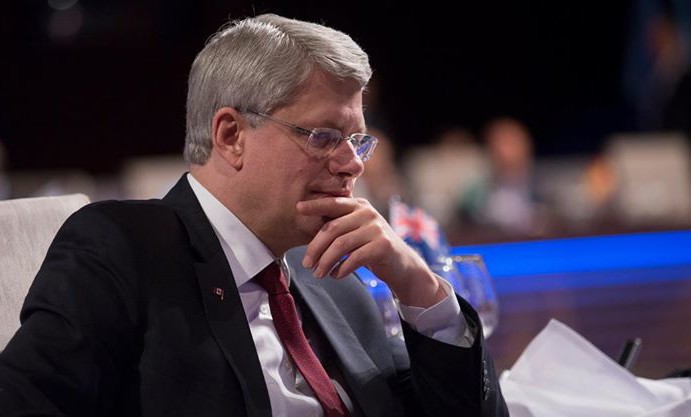Breaking
Harper government finally launches long promised consultation on assisted dying

” width=”691″ height=”417″ />
Canada PM Stephen Harper. Photo courtesy of Harper’s official Facebook page.OTTAWA — The make-up of a new panel tasked with running consultations on doctor-assisted death is drawing the ire of some groups who are concerned about bias.
The British Columbia Civil Liberties Association said it hoped for a balance of views on the government’s panel, but it is now concerned two of the three members were federal witnesses opposed to the issue when the case went to Canada’s top court.
“We are deeply concerned that this panel composition is not impartial,” executive director Josh Paterson said in a statement on Friday. “While these individuals are well-respected people, there is an appearance of bias.”
Paterson said all governments must respect the Supreme Court’s February ruling, which recognized the right of clearly consenting adults who endure intolerable physical or mental suffering who wish to end their lives with a doctor’s help.
“Canadians overwhelmingly support the right to physician-assisted dying, and it is the law of the land,” he said.”Whatever advice this panel might provide, it is clear that Parliament must not enact a law that creates barriers for those who wish to access their constitutional right to physician-assisted dying.”
The high court also gave Parliament one year to deal with the issue of legislation following its finding that Canada’s prohibition on physician-assisted suicide was a violation of the Charter of Rights and Freedoms.
Conservative MP Steven Fletcher, who has championed the cause of doctor assisted dying, said panel members will have to operate within the framework of the ruling regardless of their personal views.
“The fight around the Criminal Code provisions on physician-assisted death has been concluded, so they will have to work within (that),” he said in an interview.
The government’s three member panel will consult with medical authorities and other interested parties as part of their process, while Canadians can also participate in an online dialogue.
The panel will then provide a final report to the government in late fall, following the Oct. 19 federal election.
In a release announcing the panel on Friday, the government specified it is to consult with those who intervened in the Supreme Court case, “who represent a spectrum of diverse perspectives.
”
The panel’s chairman is psychiatry professor Harvey Max Chochinov, the Canada research chair in palliative care at the University of Manitoba.
His co-panellists are University of Ottawa law professor Benoit Pelletier, a former Quebec cabinet minister who is a constitutional expert; and Catherine Frazee, former co-director of Ryerson University’s institute for disability research and education.
Chochinov and Frazee both made arguments against doctor assisted dying before Supreme Court hearings on the matter.
Federal opposition parties have criticized the government for dragging its feet on this issue.
The Conservatives voted against a Liberal motion in late February that called for the creation of a multi-party special committee to consult and report back to Parliament by mid-summer with a proposed framework for a new law.
“We asked for this in the winter,” said Liberal health critic Hedy Fry. “If the government had agreed to it then, we would have been four or five months into an all-party committee of parliamentarians going across the country and listening to the public on this.”
Fry said the government is avoiding the issue.
“It is a very controversial issue,” she said. “So now, during the election, instead of having to discuss this issue, they can say ‘oh we have a panel.'”
Dr. Chris Simpson, president of the Canadian Medical Association, welcomed the consultations on Friday.
“Despite their well-established views on these issues, the CMA is confident that the panel, chaired by renowned Canadian palliative care physician Dr. Harvey Max Chochinov, will undertake a balanced and comprehensive consultation,” Simpson said.





















